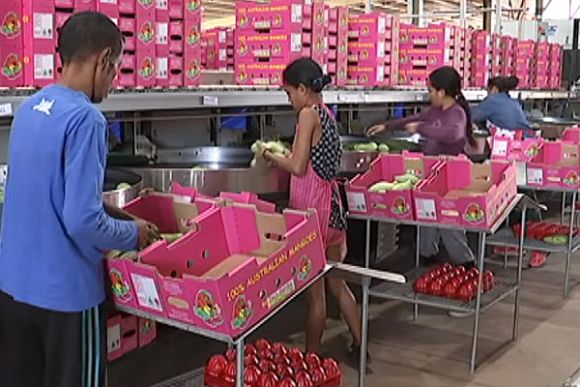Criticism aimed at a café employing child workers is unwarranted since no complaints of exploitation have been made and the children work willingly, writes Dr Jennifer Wilson.
THE THREE-DAY (so far) Twitter furore over an ABC article describing how a small business in Jugiong, country NSW employs children as young as 11 reveals some interesting attitudes to parenting, the role of the state and which 11-year-olds should and shouldn’t be allowed to sell their labour.
The Long Track Pantry café produces jams and relishes and found itself unable to cope with demand. The town has a population of around 200 and staffing was a real issue. So the Pantry took on school children and pays them award wages, which is legal in NSW where there is no minimum age restriction on employment.
Naturally, the article sparked intense discussions on the rights and wrongs of children working. It’s a legitimate discussion and in Australia, we are currently engaged in the process of ratifying the International Labour Organisation’s Minimum Age Convention, 1973. This convention provides a framework that sets out the minimum age for young people to start employment so they can work safely and without interruption to their schooling. Currently, this is determined by the states.
There is no doubt that children are exploited and abused in some workplaces, or that some workplaces can be sites of potential harm of all kinds for kids. However, there have been no complaints of abuse or exploitation at the Jugiong café, indeed the young people interviewed for the article spoke highly of their experience.
Because some workplaces are sites of exploitation and abuse for children, does this mean children shouldn’t be allowed to work?
And, vitally, what about the role of parents in this decision?
Legislation carries with it the implication that we can’t trust parents to decide if their school-aged children should go to work and that decision must be made by the state.
Unfortunately, parents send children into potentially unsafe situations every day, and indeed any environment can be unsafe if infiltrated by abusive and exploitative adults, even churches and schools. There is no reason to assume a workplace is particularly unsafe compared to other environments kids must negotiate. It gives me no satisfaction to write that. The world is largely unfriendly to the vulnerable.
I should disclose that both my children started work when they were 11, entirely on their own initiative. They did paper rounds and one mucked out stables. I made sure they weren’t exploited — it isn’t hard to monitor that. I made sure their paid work didn’t interfere with schoolwork. It isn’t hard to monitor that. I don’t think I was an especially conscientious mother and I do think many other parents whose kids have jobs do exactly the same as I did. I didn’t need or want the state to police me.
Children have the right to work if they choose, within the laws that control hours worked and remuneration. Many see work as an entry into the adult world and an opportunity to learn how to navigate that world while getting paid for the experience. They have the right to do this and adults have the responsibility to assist them with it. If kids are forbidden by law to work, that signifies the failure of the adult population to support their aspirations.
Interestingly, there has been no outcry about children who work in movies, theatre and the arts generally, only about children washing dishes, serving in the cafe and helping to make jam. There are specific rules for working with children in the creative process and exemptions to age restrictions. Children’s labour is understandably assumed to be imperative in the entertainment industry and accommodations are made.
This is rather unfair to kids who want to work but are unable or unwilling to seek employment in that industry. Indeed, it’s discriminatory. For example, in some states, an 11-year-old may not work in a local café but if they are blessed with talent, they can sell their labour to creatives. Hardly seems fair, to be honest.
The Long Track Pantry has been assailed by angry people accusing them of child exploitation.
This accusation assumes that employing 11-year-olds is in itself exploitative, regardless of the conditions. Quite why these same people aren’t boycotting movies and theatre productions with kids in them is puzzling.
It also shows contempt for the parents of the Jugiong café kids, with the inference that parents in a small country town are allowing their children to be exploited. It assumes the worst with no justification at all.
If parents give their consent to children engaging in perfectly legal work, that surely is nobody else’s business.
Hopefully, the Jugiong café won’t be pressured to fire the kids. And perhaps, since we are ostensibly concerned only with protecting children’s rights in this debate, we could consider the right they have to sell their labour if they choose to do that, and the role adults can play in protecting, supporting and encouraging them in that venture.
Much like the Jugiong café has, come to think of it.
Dr Jennifer Wilson is an IA columnist, a psychotherapist and an academic. You can follow Jennifer on Twitter @NoPlaceForSheep.
 This work is licensed under a Creative Commons Attribution-NonCommercial-NoDerivs 3.0 Australia License
This work is licensed under a Creative Commons Attribution-NonCommercial-NoDerivs 3.0 Australia License
Support independent journalism Subscribe to IA.














